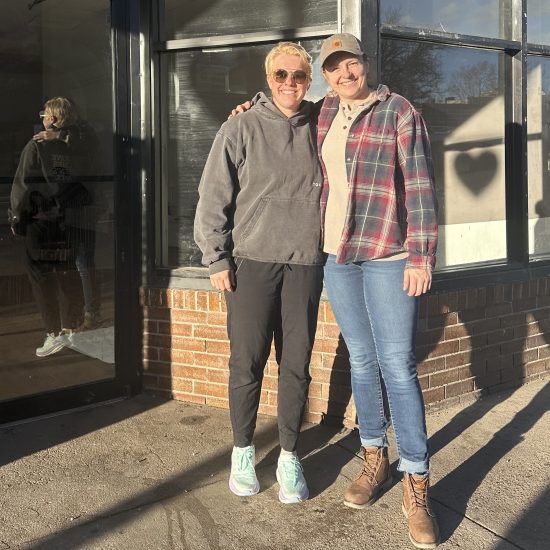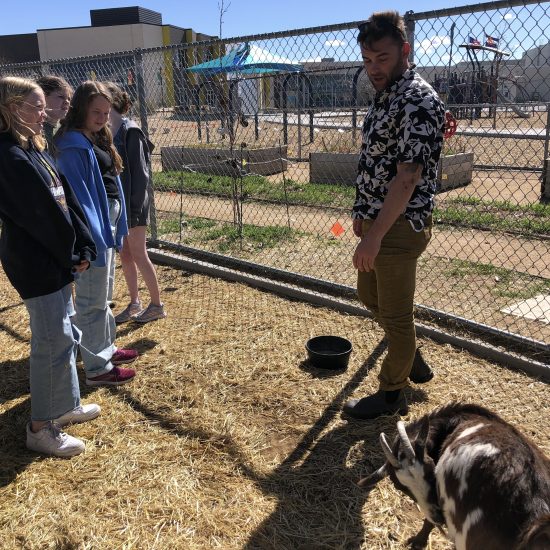
When Eva Valdez came to the United States in 1996, she quickly showed an instinct for community. Her husband had just lost his job in Mexico, leading them and their three-month-old baby to seek opportunities in the Denver metro area. Despite her lack of English and shifting circumstances, Valdez could often be seen serving food to the homeless.
“Every night when I would go to sleep I would just think, ‘You have to go back to the streets,’” Valdez said. “That is the one thing that is still in my heart.”
Nearly three decades, two kids, and many English courses later, Valdez is now the founder and owner of the Tortilla Project. Specializing in handmade corn tortillas. The project is a twist on the traditional, evidenced by the colorful complexion of the tortillas that comes from adding ingredients like spinach and peppers.
Valdez’s journey was kickstarted by her involvement with Metro Caring, an established nonprofit that excels in providing access to food and social services for those in the Denver area. She began as a volunteer, while also taking part in the community cooking classes that occurred each week. However, she felt that there was still something missing for others like her.
“I really loved how Metro Caring brought these classes to the community, but they were only taught in English,” Valdez said. “I wanted to advocate for my people and believed these classes could benefit them.”
It wasn’t long before Valdez led the first Spanish-speaking cooking class at Metro Caring. She has since become the cooking class coordinator and helped develop a diabetes-focused course. So, when the procurement team at Metro Caring was in need of tortillas for their Fresh Food Market, Valdez answered the call.
“I think I always knew I wanted to be an entrepreneur,” Valdez said. “But Metro Caring held my hand and gave me the tools to actually do it.”


Metro Caring provided both the ingredients and kitchen space for Valdez to make her tortillas. It was important for both Valdez and her newfound clientele that the tortillas were made from scratch in order to retain their nutritional and cultural properties.
“It’s a traditional dish that has value, but a lot of times that value is taken by people outside of the culture to monetize it,” said Lucor Jordan, a community connector at Metro Caring. “By keeping that value inside the community, not only is it coming back to the people who carry that culture but building a sense of pride as well.”
Then the COVID-19 pandemic hit, forcing a full -stop on production for the budding Tortilla Project. Instead, Valdez used the time to complete a business course through the Mi Casa Resource Center and earn funding through both the Rocky Mountain MicroFinancing Institute and Metro Caring.
“A vast majority of our entrepreneurs say that they are starting a business because they want to do something for their community,” said Mary Kate Morr, the director of community engagement and strategic partnerships for the Rocky Mountain MicroFinancing Institute. “So they are contributing to the economy, but there is also the less tangible way that they are showing up as leaders in the community.”
The pandemic put stress on local businesses, but the importance of shopping small remains a necessary boost for social capital as well. For RMMFI, for every dollar spent on education and capital for low-income entrepreneurs in last year alone, $3.98 was returned to the community in the form of increased local tax revenue and decreased emergency assistance.
“The hidden cost of buying those mass-produced tortillas is you spend less money but all of that profit leaves your community,” Jordan said. “Whereas when you buy from the Tortilla Project and small businesses, that money stays circulating and raises the wealth for the whole community.”
Valdez remains an active mentor for other instructors at Metro Caring and makes regular appearances at Denver farmer’s markets, including South Pearl and Huerta Urbana at Focus Point Family Resource Center. But for Valdez, the sky’s the limit.
“If I make money, then great. But The Tortilla Project will be successful because it’s about more than tortillas,” Valdez said. “I really want to create jobs for women just like me. I want to have a building where mothers can come work and make tortillas, while also having a space for child care because I know how hard it can be.”
To learn more about the Tortilla Project or purchase some for yourself, visit their Instagram or Facebook.






